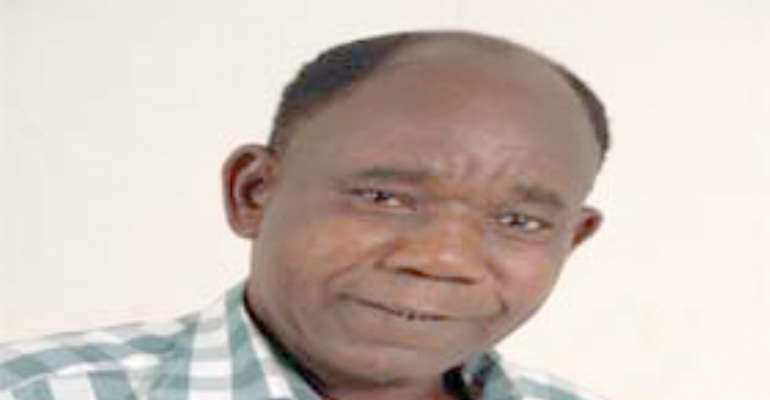LASU LITERARY FESTIVAL: TUNDE ALABI FETES YOUNG ARTISTES

Tunde Alabi
Students of English languageat the satellite campuses of Lagos State University, Ojo, excited leading actors Tunde Alabi and Seyi Fasuyi recently, when they held their annual Literary Festival in Lagos. At the Aina Onabolu Building at the National Theatre, they competed in drama and poetry performance, with Lagos-based poet, Iquo Eke, with Alabi and Fasuyi as judges.
At the end of the festival, Adediwura Olanrewaju won the Best Actor Award; Adesanya Sasonet won the Best Poet; Nnaemena, Best Playwright; while Aneke Chinanso is second runner up in poetry.
Although Alabi commended the budding artistes for showcasing the practical side of what they learn in school, he gave them tips on how to grow fast in the trade. Among others, he stressed the importance of discipline and need to be on top of diction.
'Theatre is the beginning and end of discipline,' Alabi told them. 'If you were dead drunk yesterday, today you must be on the stage at the right time.'
On diction, he urged the students to sharpen the level they displayed in the course of the performances, saying it is good elocution that makes a production 'exportable.'
'Diction is very important. It is part of the duty of the actor or actress to bring out the beauty of the script.'
He also enjoined them to always put forth their best, because none of them could predict where he or she would be discovered.
On his part, Fasuyi, a former chairman of the Lagos State chapter of the National Association of Nigerian Theatre Arts Practitioners, urged the organisers to keep the project alive as it was a way of fostering unity among the various campuses.
While Eke also advised the poets to keep on writing and performing their poems, another practitioner, Mr. George Eyo, reminded the participants of the need to give every word or line life – and not just present it as if one is just reading.
The brain behind the festival, Mr. Folu Agoi, who is the programme officer of the Anthony Campus of the university, expressed happiness at the students' efforts. He said, 'I am very happy. I am happy with myself based on what I have seen. There is hope for this nation, because people had already been asking: After the Soyinkas, what next? There is hope for us.'
